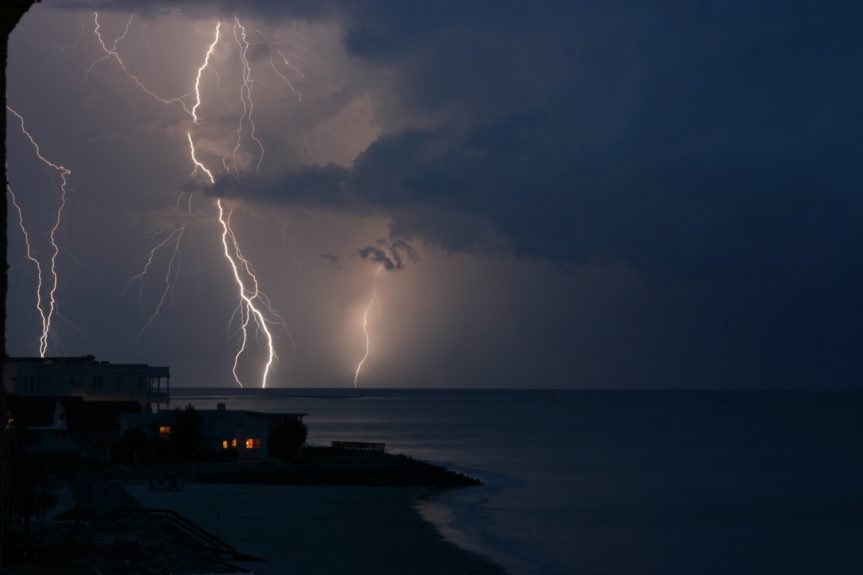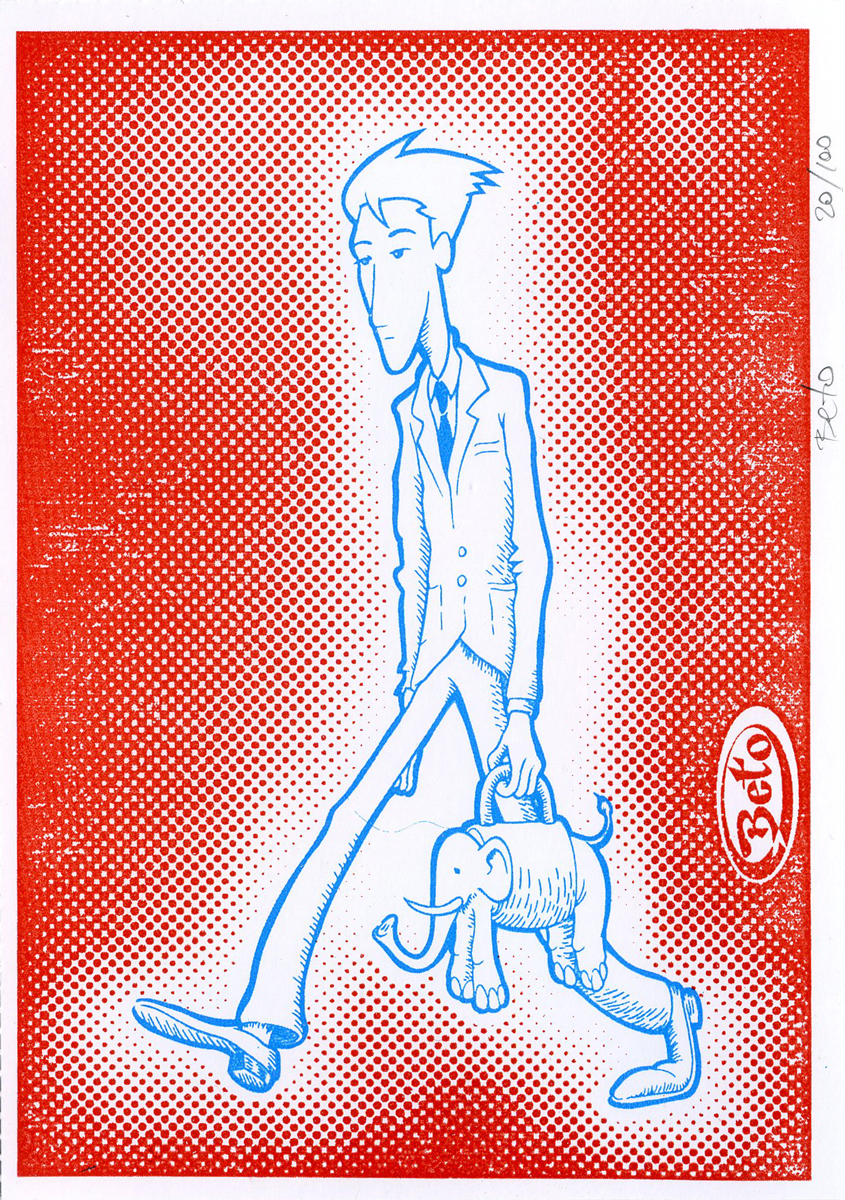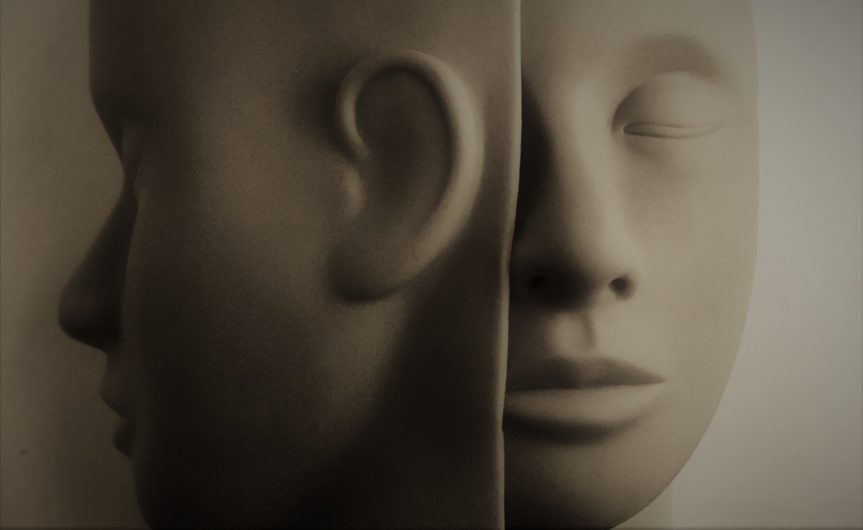
By Nina B. Lichtenstein
Suddenly, I found myself living in Brooklyn, in the same building as my twenty-five-year-old son Tobi. His presence there made my move feel grounded and comforting, like it made more sense.
“You framed me!” he joked when I told him I was moving in upstairs from him, and added, “No judging of me, promise?”
“Honey, no judging of me,” I retorted. I was newly single at fifty-four and had fantasies of living it up. Thankfully he laughed.
I was going to live by myself for the first time in my life, and the thought overwhelmed but also excited me. Mostly excited. My twenty-three years-long marriage to the father of my three sons had ended in divorce ten years earlier, and six years later, when the boys launched from the nest, I followed my new partner Tony to Maine, where he had retired. Now I had broken up with him and moved out.
Ours was a relationship that had felt bashert —meant to be—on so many levels, it used to make us giddy. Both Tony and I had emotional and exuberant personalities, and he was a convert to Judaism as was I; he was a professor of French and I had a Ph.D. in French, and we both yearned to live in a more northern climate (he is a native of Maine and I of Norway) than the hot and humid Connecticut where we had each raised our combined large brood of kids, nine in all. We also shared a challenge: neither of us was particularly good at letting go of a disagreement before it spiraled into an exhaustive fight and sour moods that could easily ruin the day or, worst-case scenario, turn our much longed-for Sabbath, a day of peaceful rest and loving, into a period of disconnect and silence. Though we usually managed to rally and turn things around, when the latest storm hit, I felt I had reached my limit, and I wanted out.
When I left Tony, I felt as if I was facing a huge, white canvas: the possibilities seemed endless and thrilling, but the vastness of this unexpected and open space was also scary. I was free, but now what? A text pinged on my phone from my son’s landlord, a family friend: there was another opening in his building. Did I know anyone who might be interested?
•••
Even though the apartment was rent-stabilized, nothing about this made any financial sense, but I wanted to listen to my guts, not shy away from change just because it would be a challenge, wasn’t the “safe” thing. I was in my third semester of a low-residency MFA program and bills ticked in from the university every month, and I was still paying for my two younger sons’ college educations. I knew deep inside that an impulsive move during an emotional upheaval was probably not the wisest path, but I quickly imagined a new beginning and fantasized wildly about how I would re-invent my mid-life from sleepy Maine to hipster Brooklyn. I was going to be a New Yorker, after all! It had been a fantasy of mine since I first left my childhood home in Oslo, Norway, at nineteen and came to America as an au-pair, nearly thirty-five years ago.
“Can we talk about this?” Tony tried, as I packed my personal belongings from our house in the quintessential New England college town where it sat steps from the quaint campus and lush town green. “Please don’t go,” he pleaded, “What we have is too precious, Nina!” But my heart was hardened, and I was exhausted from our latest debacle. I didn’t see all that preciousness now; all I could say was, “No.”
Our Maine house was built in 1865 and had an adjoining, raw barn with cracks in the walls and a two-seater, wooden outhouse; “the honey-pot” Tony called the ancient privy and thought it was the most romantic thing ever. When I moved up from Connecticut, we renovated the barn and turned it into a colorful and glorious AirBnB where we hosted happy tourists during the summer, and family and friends during the year. We’d put our hearts and souls into cultivating the garden where tomatoes, kale, and blueberries thrived, and the vibrant colors in our flower beds brightened our days; Cosmos, Zinnias, Coneflowers, and Bachelor’s Buttons, their heads turned toward the sun on summer mornings, we’d sip our coffee and read the paper in our blue and green Adirondack chairs facing each other, feeling blessed.
Now I was driving the twenty-five-foot U-Haul truck south, filled with odd pieces of furniture I had gathered from the house, a few flea market finds, and suitcases stuffed with my clothes. I made a strategic stop at IKEA in New Haven on the way south and picked up a simple, pine bed frame and a white, round, dining table with four aqua colored plastic chairs, their contemporary design totally out of character for me who normally prefers things showing the imperfect patina of age and use.
I navigated through narrow city streets and completed a gutsy parallel parking stunt under low hanging branches that creaked ominously across the roof of the truck. Tobi and his roommate greeted me from the apartment building stoop. “Hey mamma, welcome home!” he said with grin and gave me one of his delicious bear hugs. They helped me move in to the top floor, one-bedroom apartment with hardwood floors and high ceilings. Located across the street from Brooklyn Botanical Gardens in a once-elegant, pre-war brick building, its old-world charm had dwindled over the decades but was still palpable. I was in love.
I quickly got to know my new neighbors, some whose families had lived in the building for generations. I recognized the faces of the owners of the shabby bodegas on Franklin Street and was on first name basis with Rawl at the Laundromat and Maggie at the coffee shop owned by the Palestinian grocers next door. She called me “mami” and knew I liked oat milk in my coffee and capers on my bagel.
In the apartment, I pulled up multiple layers of grungy linoleum from the kitchen floor and covered the mismatched and crooked floor tiles in the bathroom with soft bathmats. I splurged on a teal green, velour sleeper couch, and I painted the kitchen wall orange. In a whirlwind I nested like a fervent mammal expecting pups and turned the rundown place into a cozy and colorful lair. Candles flickered everywhere, plants perched on windowsills, and jazz piped from the speakers. I relished living by myself, something I had never experienced before. My son even said he loved having me close by, especially when I cooked dinners for him upstairs and stayed away from his messy den of iniquity downstairs.
•••
After a brief period of separation, Tony came to Brooklyn for a visit. We had been in touch via email, and as days turned into weeks, something softened in me. We were both wordsmiths and romantically inclined, and early tentative exchanges turned warmer until eventually, we agreed to see each other. He said he wasn’t excited about coming to the apartment that symbolized our break-up, but he made the journey anyway. I looked forward to welcoming him and made sure I had his favorite gin in the freezer.
Having him next to me again felt really good, and after four days and a few difficult conversations, we decided to not give up on our couple after all. We agreed on a compromise: I’d keep the Brooklyn apartment and divide my time between Maine and the City.
“I’m happy in my own company,” I told him, as I tried to explain how much I had relished my alone-time. “I’ll need to be able to have some of this, moving forward.” We were going to work on our relationship, and soon I was back north for a visit. We made plans for an extended trip to Israel, where Tony has kids and grandkids.
But then Covid-19 happened, and the trickle of strange information rapidly turned into a deluge of scary statistics, followed by travel advisories, lockdowns, and cancelled flights.
Plans changed for everyone. The young academic couple that was subletting my Brooklyn apartment for the spring returned to Spain, as libraries, universities, and archives closed their doors. This meant I was stuck with the rent. Two of my three sons lost income due to the pandemic and needed extra support from their father and me. I kept knocking myself —see what happens when you act on impulse?—and deep inside, a harsh voice kept telling me the whole Brooklyn idea had been foolish.
Yet, something had shifted between my partner and me since I had taken the apartment, and we had both spent some time alone. The heat of the fights had cooled and our hearts had thawed from the frost that made believing in our couple seem impossible. We were able to recall the reasons we had fallen in love in the first place, everything we shared, and how much we loved all that and each other. So, I stayed in Maine for what we agreed would be “a relationship in process.” We were getting along surprisingly well during the many weeks long shelter-in-place spring.
During New York’s most dire pandemic days, a woman from Bangladesh visiting her son in the City reached out. She needed a place to stay until things quieted down—could she sublet? “Your apartment seems like such a happy, comfortable space,” her son said in our Zoom meeting, sitting next to his mom, translating back and forth from Bengali. I was thrilled to offer his mom the apartment, and he was grateful that she would have a warm and welcoming home in which to stay safe.
I scroll through the colorful photos of the Brooklyn apartment and wonder when I will be able to return. I love the urban dwelling I created as a true “room of my own,” yet back in Maine, waiting out the lockdown, I was a better partner. More patient and compassionate, I held Tony’s hand on our walks beneath the pines, and as spring turned to summer and summer to fall, I sensed renewed hope for a future. I realized that although I’m at home in more places than one, my heart has found its way back to my bashert.
•••
NINA B. LICHTENSTEIN is a native of Oslo, Norway, who divides her time between Maine and Tel Aviv. She has a PhD in French literature and an MFA from University of Southern Maine’s Stonecoast program. Her essays have appeared in the Washington Post, Tablet, Brevity, Hippocampus, Lilith, and AARP’s The Ethel, among other places.

 Follow
Follow








